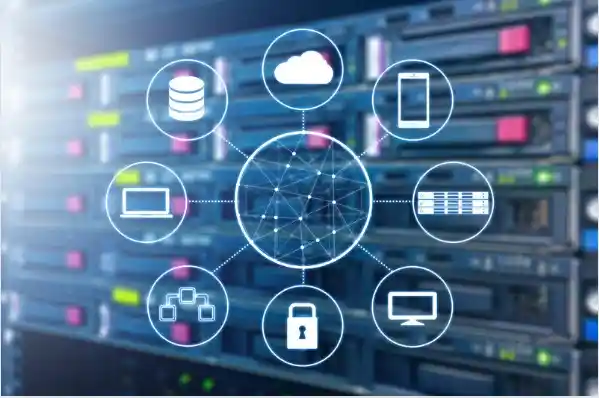Rdatao Explained: Enhancing Insights with Modern Data Science

Rdatao, an abbreviation for “Data Analysis and Optimization,” is a cornerstone of modern data science. This multifaceted discipline focuses on collecting, preprocessing, analyzing, and visualizing data to extract actionable insights. These insights drive strategic decision-making across various industries. This article will delve into the intricacies of Rdatao, covering the latest advancements, tools, applications, and ethical considerations.
Data Collection
Data collection is the first step in Rdatao, involving aggregating raw data from diverse sources such as databases, APIs, sensors, social media, and more. The quality and reliability of insights derived from data heavily depend on the comprehensiveness and accuracy of the collected data. Techniques such as web scraping, IoT data collection, and real-time data streaming are commonly employed.
Data Preprocessing
Once data is collected, it must be preprocessed to ensure it is clean, consistent, and ready for analysis. This stage includes several crucial tasks:
Data Cleaning: Removing or correcting inaccurate records, handling missing values, and eliminating duplicates.
Data Transformation: Converting data into a suitable format or structure for analysis, which might involve normalization, scaling, or encoding categorical variables.
Data Integration: Combining data from multiple sources to provide a unified view.
Adequate data preprocessing enhances the quality and reliability of the analysis, ensuring more accurate and actionable insights.
Data Analysis
Data analysis is the core of Rdatao, utilizing statistical, computational, and machine-learning techniques to uncover patterns and trends within the data. Key methodologies include:
Descriptive Analysis: Summarizes historical data to understand what has happened in the past.
Predictive Analysis: Uses historical data to forecast future trends and outcomes, often leveraging machine learning models.
Prescriptive Analysis: Recommends actions based on predictive insights, optimizing decision-making processes.
Data Visualization
Data visualization is critical in Rdatao, transforming complex datasets into understandable and actionable insights. Visual tools such as charts, graphs, and dashboards help stakeholders quickly grasp trends and make informed decisions. Advanced visualization techniques, including interactive and real-time dashboards, are increasingly popular for their ability to convey complex information succinctly.
Programming Languages and Tools
Rdatao relies heavily on robust programming languages and tools that offer extensive libraries and frameworks:
R and Python: These languages are staples in data science due to their comprehensive libraries (like Pandas, NumPy, and ggplot2) and strong community support.
Machine Learning Frameworks: TensorFlow, PyTorch, and Scikit-learn are essential for developing and deploying machine learning models that enhance predictive analytics capabilities.
Data Visualization Platforms
Platforms like Tableau, Power BI, and Matplotlib are crucial for creating impactful visualizations. These tools enable data professionals to develop interactive dashboards and reports that drive strategic decision-making.
Cloud Computing Services
Cloud services from AWS, Google Cloud Platform (GCP), and Microsoft Azure offer scalable infrastructure for managing large datasets. These platforms provide data storage, processing, and analysis tools, enabling faster and more cost-effective data operations.
Applications in Various Industries
Rdatao’s versatility makes it applicable across numerous sectors, driving innovation and efficiency.
Healthcare
Rdatao facilitates personalized medicine in healthcare by analyzing patient data to tailor treatments and improve outcomes. It also accelerates medical research by identifying patterns in large datasets, aiding in discovering new drugs and therapies.
Finance
The finance sector leverages Rdatao for risk management, fraud detection, and algorithmic trading. Financial institutions can make informed decisions that enhance performance and mitigate risks by analysing market trends and transaction data.
Retail
Retailers use Rdatao to optimize inventory management, predict consumer behaviour, and personalize marketing strategies. Analyzing purchasing patterns allows businesses to offer targeted promotions and improve customer satisfaction.
Ethical Considerations
Ethical considerations are paramount in Rdatao, especially regarding data privacy, security, and bias. Responsible data handling ensures transparency, protects individual rights, and fosters stakeholder trust. Ethical practices involve:
Data Privacy: Implementing stringent measures to safeguard personal information.
Data Security: Protecting data from unauthorized access and breaches.
Bias Mitigation: Ensuring algorithms and analyses are free from bias that could lead to unfair outcomes.
Future Trends
The future of Rdatao is bright, with advancements in technologies such as the Internet of Things (IoT), artificial intelligence (AI), and deep learning. These innovations enhance data analysis capabilities, enabling real-time insights and more accurate predictive analytics.
Conclusion
Rdatao is an essential and ever-evolving field that empowers organizations to harness data for strategic decision-making. Mastery of Rdatao principles and tools is crucial for professionals aiming to thrive in a data-driven world. By understanding and applying Rdatao techniques, businesses can unlock new opportunities for growth and innovation. You can also know about Intrepidfood.Eu by going through that link.
FAQs
What is Rdatao?
Rdatao stands for Data Analysis and Optimization, focusing on collecting, preprocessing, analysing, and visualising data to derive actionable insights.
What are the primary tools used in Rdatao?
Essential tools include programming languages like R and Python, machine learning frameworks like TensorFlow and PyTorch, and data visualization platforms like Tableau and Power BI.
How does Rdatao benefit healthcare?
Rdatao enhances personalized medicine, improves treatment outcomes, and accelerates medical research by analyzing patient data and identifying patterns.
What ethical considerations are essential in Rdatao?
Key ethical considerations include data privacy, security, and bias mitigation to ensure responsible and fair use of data.
What are future trends in Rdatao?
Future trends include IoT, AI, and profound learning advancements, which are expected to revolutionize data analysis capabilities and enable real-time insights.





